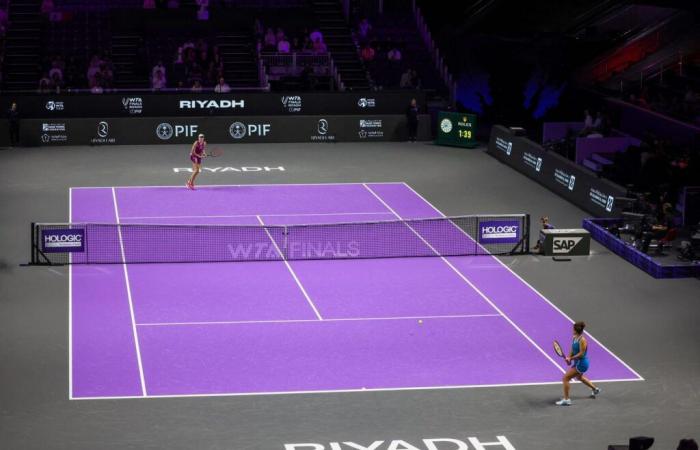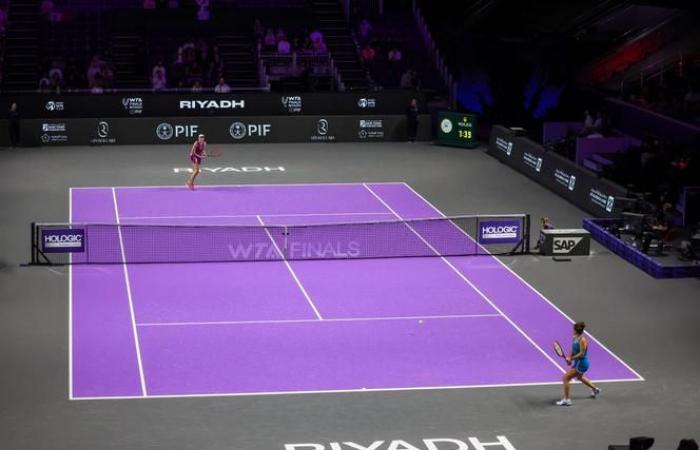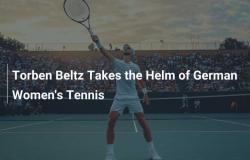The WTA Masters, a flagship event on the women's professional circuit which brings together the eight best players in singles and the eight best teams in doubles, begins Saturday, November 2 in Riyadh, Saudi Arabia, and will be held until November 9. Endowed with more than 15 million dollars (around 13.8 million euros) in “prize money” – a sum equivalent to that of men in the ATP Masters – the end-of-season competition is nevertheless controversial due to the choice of the organizing country, with whom the WTA signed for three years. The Saudi kingdom is regularly criticized by NGOs for its human rights violations, particularly against women and the LGBTQ+ community.
To better understand the situation, we need to rewind. In 2019, the WTA left China following the Peng Shuai affair, and canceled a ten-year contract. Weakened by the Covid-19 pandemic, the WTA then organized the Masters on the basis of last minute agreements. Saudi Arabia's lucrative offer was therefore seen as a lifeline by the WTA.
But holding the event in the conservative kingdom raises reservations: “I'd be lying to you if I said I didn't have any reservations… declared world number 3 Coco Gauff at a press conference on Saturday, in palpable unease. If I feel uncomfortable or if I feel like nothing is changing in the country, then I probably won't come back.”said the 20-year-old young woman, committed to the rights of minorities in the United States.
Read the portrait: Caroline Garcia wins the WTA Masters, a coronation with a taste of revenge
Read later
Discomfort in the tennis world
The American is not the only one to have expressed her reservations. Former world number 1 Martina Navratilova has always opposed the organization of the competition in Saudi Arabia: “ We lost our morals when we decided to go there, declared the eight-time winner of the Masters at New York Times in October. I would have liked to see some progress first. Women should be equal citizens before the law. Otherwise, you might as well play in North Korea. »
Others, however, see it as a way to drive change in the region. Billie Jean King, one of the founders of the WTA and voice of women's tennis, is in favor of holding the Masters in Riyadh, as is Belarusian Aryna Sabalenka, world number 1, who said: really impressed” by the efforts “implemented for women’s sport”.
If the subject divides so much, it is because the uneasiness runs through the entire middle of the little yellow ball. In the space of a few months, the ATP and the WTA have multiplied events in Saudi Arabia: the ATP NextGen Finals, which pits the best players under 21 against each other, took place in Jeddah; the Six Kings Slam exhibition was organized in Riyadh in October including Jannik Sinner, Carlos Alcaraz and Novak Djokovic; and Rafael Nadal accepted an ambassadorial role with the Saudi Tennis Federation.
Read also | Article reserved for our subscribers Nadal ambassador, Women's Masters envisaged, tennis in turn gives in to the sirens of Saudi Arabia
Read later
But the organization of the WTA Masters marks a change of direction: never has the kingdom, which multiplies partnerships in sport through its Public Investment Fund (PIF), hosted an international women's competition of such importance. Yet Saudi women still cannot be trained by men, women's rights activists are imprisoned, male tutelage remains in force and the LGBTQ+ community is repressed.
Despite the situation, none of the players declined the invitation: Aryna Sabalenka, Iga Swiatek, Coco Gauff, Elena Rybakina, Jasmine Paolini, Jessica Pegula, Zheng Qinwen and Barbora Krejcikova all responded present in Riyadh.
Newsletter
« Sport »
Surveys, reports, analyses: sports news in your email box every Saturday
Register
Asked about this, Coco Gauff declared on Friday: “I am fully aware of the situation in Saudi Arabia, but I think sport can open doors for people (…). The WTA has committed for the next three years to supporting the “Future Stars” program in Saudi Arabia, and introducing more Saudi women into the sport. I hope this will promote equality. »
Decryption | Article reserved for our subscribers Tennis facing its paradoxes, between an overloaded schedule and the sirens of exhibition tournaments
Read later







